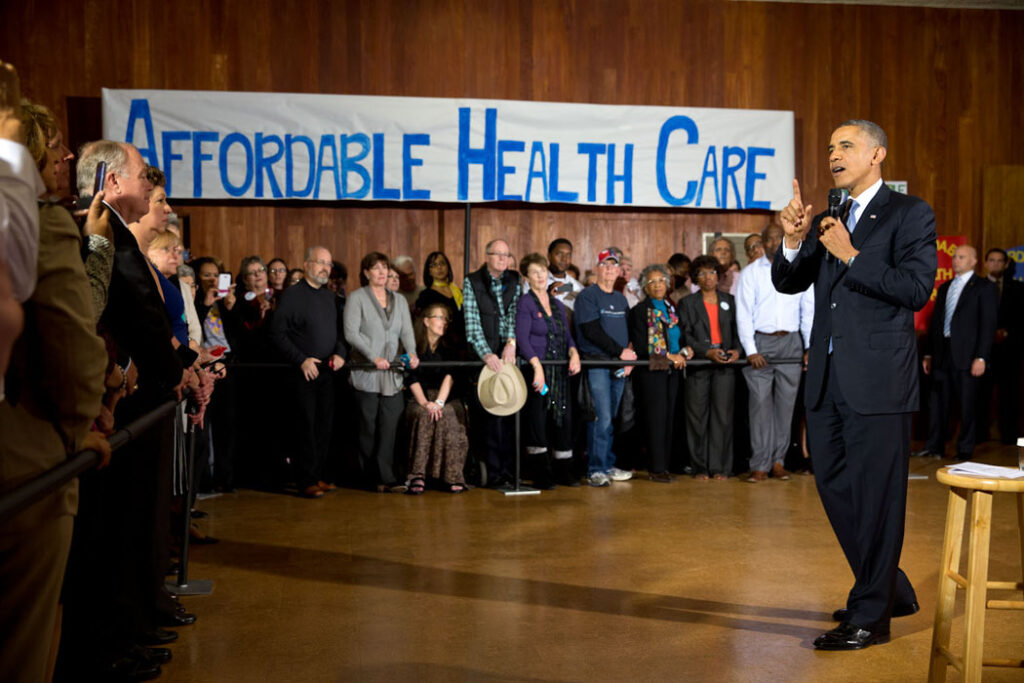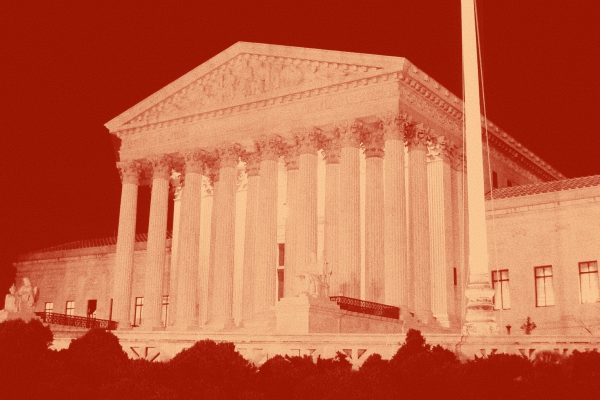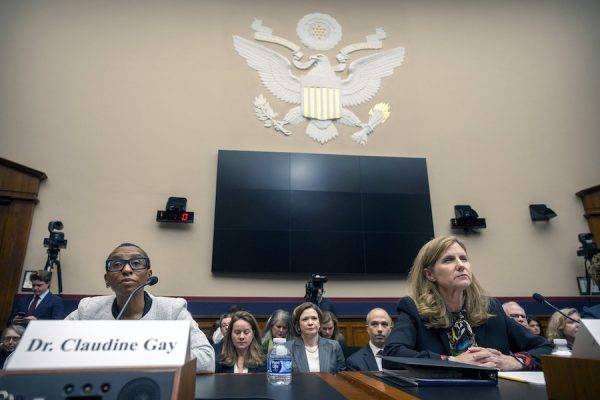Web Editor David Johnson spoke with BR legal columnist Pam Karlan today by phone right after she read the Supreme Court’s historic 5-4 decision to uphold the Affordable Care Act.
David Johnson: Tell us your impressions of the opinion and the dissent.
Pam Karlan: Do you want me to start by summarizing what the Court said?
DJ: Sure, start by summarizing the majority opinion.
PK: So there were two issues—two big issues and then two minor issues—before the court in the Affordable Care Act case. The two big issues were: was the individual mandate constitutional, and was the expansion of Medicaid to cover a great deal many more people who are near the poverty line constitutional? The two minor issues were: could the court hear the case at all at this point, and if there was any provision of the act that was unconstitutional, what happened to the rest of the act? So those were the issues in front of the court.
The bottom line was that the individual mandate is constitutional and the expansion of Medicaid to cover more people is constitutional, but—and this is an important but—states cannot have their existing Medicaid funds cut off if they decline to participate in the expansion of Medicaid to millions of additional people. So that’s what the bottom line of the case was.
DJ: My understanding of Roberts’s decisive opinion is that he didn’t think the individual mandate was constitutional under the commerce clause, which is something that, in a column last year, you said you thought was constitutional—that under the commerce clause, Congress did have the power to enforce the mandate.
PK: Five justices thought that the individual mandate can’t be sustained as an exercise of the commerce power. The chief justice wrote that in an opinion for himself, and then in a rare joint opinion—usually an opinion has one justice’s name on it and others might join it or not—written by Justices Kennedy, Scalia, Alito and Thomas, those five justices all thought that the individual mandate can’t be sustained as regulation of commerce because it regulates what they view as inactivity, and the commerce clause only permits Congress to regulate commercial activity that is already in existence. And that is, I think, a major decision on the commerce clause. It has no effect in this particular case, because in this case the chief justice peeled away from that to sustain the act on taxing-power grounds. But it suggests that there are five justices who really do want to impose some limits on the commerce power, and, in a separate dissent, Justice Thomas repeated his belief that we should go back to the nineteenth-century version of commerce.
DJ: How much does that worry you, as someone who thought that the commerce clause permitted the act?
PK: In the short term, it doesn’t worry me terribly, because most of the stuff that Congress regulates is quite different, in the sense that they’re regulating either commercial actors or people who are involved in a commodity that is being bought and sold commercially. In the longer run, it suggests that the court is hostile—and the joint dissent is quite hostile—to the idea that the commerce clause is intended to be a major source of governmental power for dealing with a pervasive social problem.
DJ: The big surprise for all of us is that John Roberts joined what we might call the left side of the court in ruling that the law is constitutional. What do you make of that? And also, do you remember Roberts’s questions and comments during the oral arguments?
PK: I didn’t go back and review his questions and comments during the oral arguments. He did press a bit at oral argument on what the consequences are if you don’t buy the insurance. And the government basically said, the only thing that happens if you don’t buy the insurance is that you have to pay this fee to the government—the fee that Chief Justice Roberts ultimately treats as a tax and thereby sustains the mandate by saying you have two choices. One is, you can buy insurance, and the other is, you can pay a fee to the government. What you can’t do is neither buy insurance nor pay a fee, but—in the way Justice Roberts puts this—you’re not actually required to buy insurance, you just have to make a choice. And so you’re not being compelled into participating in commerce.
I’m not surprised by this. What actually surprises me is two things. One is that the vote was 5-4. I would have expected it to be 6-3 on the taxing issue—that is, I would have expected Chief Justice Roberts would have brought Justice Kennedy along on that. So that’s the first thing that’s surprising.
The second thing is, I assumed for a while that the Court would uphold the act under the taxing power. And I assumed that, having decided to do that, the Chief Justice wouldn’t have addressed the commerce clause issue. So I think its kind of interesting and surprising that he decided to address the commerce clause issue. And he did it in a way that, if you read the opinion carefully, is designed, I think, to express some exasperation with the political branches. Justice Ginsburg, in her separate opinion, says the same thing: Why did you address the commerce clause? You don’t need to do that, she said to the chief justice. And the chief justice says, well, I have to do it because really, we shouldn’t decide on this case as a commerce clause case, and under the commerce clause, this act is invalid. And I’m saving the government’s bacon by re-casting this as a taxing case, so that the mandate can be sustained. And so there are various intonations of disapproval in the chief justice’s opinion.
DJ: One of the political worries that the Obama administration had is calling this fee you have to pay, if you don’t buy health insurance, a tax. The opinion seems to confirm, at least politically, that it is a tax.
PK: Yes. And the joint dissent—the Scalia-Kennedy-Thomas-Alito dissent—basically says exactly that: there’s a reason they didn’t call this a tax, because taxes are unpopular. And we shouldn’t be treating it as a tax.
DJ: Were there any other elements in the writing of the decision that you found surprising, interesting, or illuminating?
PK: One thing that’s very interesting is that the three main opinions—that is, the chief justice’s opinion, Justice Ginsburg’s opinion, and the joint dissent—have these little hints in them that, at some point, it looked as if the act was going to be struck down outright. Because the joint opinion has sections in it that wouldn’t have been necessary if the chief justice’s opinion had been the lead opinion from the beginning. That is, the joint opinion spends a lot of time explaining why the Medicaid expansion is unconstitutional—or, not why the Medicaid expansion is unconstitutional, but why threatening to take away the states’ existing Medicaid funding would be unconstitutional.
DJ: Can you explain why he thinks that is?
PK: Because it’s too coercive of the states. The federal government’s taxing and spending power allows it to essentially write contracts with the states where it says, we’ll give you money if you agree to do the following things with the money. And what the Affordable Care Act did was dramatically expand the number of indigent Americans who would be entitled to participate in the Medicaid program. What the federal government said to the states is, we’ll give you a bunch more money—in the beginning, we’ll give you 100 percent of the money, but over time, it will go down to 90 percent of the money—in return for your covering these people as well. And if you don’t cover these people, we may take away all of the money we’ve been giving you for Medicaid. And the majority of the court found that this was too coercive, that this wasn’t really a contract, it was more a sort of Godfather-esque “offer you can’t refuse.” And the Constitution prohibits the federal government from offering the states a contract they can’t refuse.
DJ: One quote from Roberts’s opinion that the Times mentions is that letting the law survive reflects “a general reticence to invalidate the acts of the nation’s elected leaders.” I’m surprised that he would even feel the need to say something like that. It seems as though that’s a response to the politically charged nature of this ruling.
PK: I think one way you could see that is the chief justice recognizes how politically charged this is. He’s got this opening section of his opinion that’s really a kind of civics primer. It is not really directed at this case itself, certainly not at the parties to this case, who are all sophisticated and understand what the issues are, but it’s designed to say, look, I’m not saying I think this is a good law, and he says that at a couple of points. We’re not talking about whether this law is wise or not. But it’s our job to sustain laws if we can.
DJ: That he would even feel the need to say such a thing is suggestive not only of our current political dysfunction but also of the politically charged nature of the ruling.
PK: Yeah, I think that’s definitely right.
DJ: Let me ask two more things. First, for people who are not trained as you are in interpreting the opinion of the court and who don’t have time to read it—people who just read the news stories—what do you think they’re going to miss by not reading the opinion?
PK: What they’re going to miss is that although this law survives in large part, the court is setting down some markers for restricting the federal government’s power in the future, both in putting some new real limits into the commerce clause and in suggesting that it is going to police the spending clause much more carefully.
DJ: And second, supporters of the law were very worried about the consequences of the Supreme Court ruling it as unconstitutional, so they might share a great deal of relief that the court has punted the whole issue about health care back into the political realm. What is your feeling about that? Do you feel relieved about the Supreme Court’s ruling?
PK: Am I relieved about this? I am relieved about it because I think that striking down a kind of signature piece of legislation like the Affordable Care Act, especially if it had been done by a 5-4 vote, would have tremendously undermined the court’s credibility, which, as you know from our discussion a couple of weeks ago, is already at a historic low.
DJ: Thank you so much for talking to us about this very important ruling.
PK: Glad to do it.








